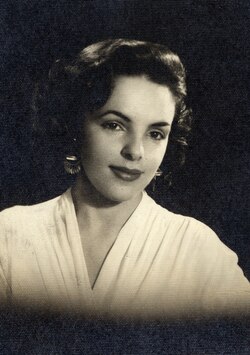Maria Lúcia Godoy, one of Brazil’s most revered sopranos and a passionate champion of both classical and Brazilian music, has died at the age of 100. Her unmatched voice, emotional depth, and dedication to the music of Heitor Villa-Lobos and other Brazilian composers made her a global icon of vocal artistry.
Search for Missing in Texas Hill Country Continues Despite Adverse Conditions
What Happened
Maria Lúcia Godoy passed away peacefully on May 16, 2025, in Belo Horizonte, Brazil, marking the end of a century-spanning legacy in the world of music. Her death closes a remarkable chapter in Brazilian cultural history, but her influence remains ever-present.
Early Life and Musical Education
Born on September 2, 1924, in Mesquita, Minas Gerais, Maria Lúcia grew up in a family that valued education and the arts. She later moved to Belo Horizonte, where she earned a degree in literature from the Federal University of Minas Gerais.
Godoy began her vocal training under Honorina Pretti and later studied with Paschoal Gambardella in Rio de Janeiro. Her exceptional talent earned her a scholarship to study in Germany, where she refined her craft with renowned soprano Margarete von Winterfeldt, becoming a technically superb and emotionally expressive performer.
A Trailblazing Career in Classical and Brazilian Music
Maria Lúcia Godoy’s professional career began with her debut under the direction of her future husband, Maestro Isaac Karabtchevsky, in the Madrigal Ars Nova ensemble. Her voice quickly garnered national and international attention.
She became particularly known for her powerful interpretations of works by Heitor Villa-Lobos, especially her acclaimed recording of Bachianas Brasileiras No. 5, a benchmark for Brazilian classical vocal music. Her ability to bridge classical and native Brazilian styles set her apart as one of the most important voices of her time.
Throughout her decades-long career, she collaborated with major Brazilian composers such as Edino Krieger, Cláudio Santoro, Ronaldo Miranda, and Marlos Nobre, further solidifying her status as a guardian of Brazilian music.
Operatic and Chamber Music Achievements
Godoy also shined on the operatic stage, delivering memorable performances in roles such as:
- Mimi in La Bohème
- Rosina in The Barber of Seville
- Dorabella in Così fan tutte
These roles highlighted not only her vocal prowess but also her dramatic sensitivity.
In 1977, she released the landmark album “Maria Lúcia Godoy Interpreta Villa-Lobos”, in collaboration with guitarist Sérgio Abreu and cellist Alceu Bocchino, which is considered a milestone in her recording legacy.
Legacy and Cultural Impact
Maria Lúcia Godoy’s legacy extends far beyond the concert stage. She was a tireless advocate for the international recognition of Brazilian music, actively promoting the inclusion of Brazilian compositions in concert halls and opera houses worldwide.
Her work played a vital role in introducing Villa-Lobos and other Brazilian composers to global audiences, and her recordings remain essential listening for lovers of both opera and Latin American classical music.
As one of the most celebrated Brazilian sopranos of the 20th century, her influence continues to resonate with new generations of musicians and vocalists.
Personal Life
Maria Lúcia was married to conductor Isaac Karabtchevsky, with whom she shared a lifelong professional and personal partnership. Together, they formed one of Brazil’s most influential couples in the world of classical music.
She remained connected to her roots in Minas Gerais, mentoring young artists and inspiring countless musicians even after turning 100 in September 2024.
Tributes from the Music World
Following her passing, musicians, conductors, and cultural leaders across the world paid tribute to Godoy’s extraordinary career. Fellow artists praised her for her:
- Unrivaled voice
- Dedication to preserving Brazilian musical heritage
- Mentorship and inspiration to future generations
Her interpretation of Bachianas Brasileiras No. 5 continues to be a touchstone for Brazilian classical music.
Statement from the Family
In a heartfelt statement, her family shared:
“Maria Lúcia was not only a remarkable artist, but also a loving mother and wife. Her music touched everyone who met her, and her contribution to the world of music fills us with pride.”
Conclusion: A Voice That Will Echo Through Time
Maria Lúcia Godoy’s death is a profound loss to the classical and Brazilian music world. Yet, her voice, her passion, and her pioneering efforts will live on. She was more than a singer—she was a cultural force who elevated Brazilian music onto the world stage. Her life’s work continues to inspire, educate, and move generations of artists and audiences alike.


1 thought on “Maria Lúcia Godoy Obituary: Celebrated Brazilian Soprano Dies at 100”